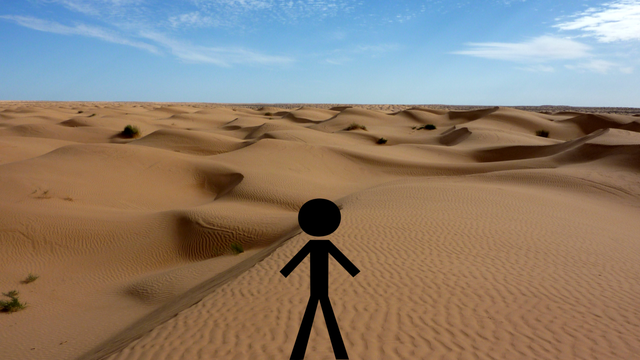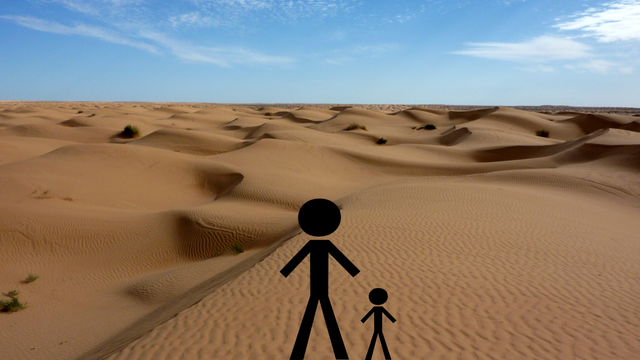Originally Written: 05/31/2019
Premise
I had a conversation with a couple of my co-workers about a week before the time of this writing on the topic of child support. Although it revolved around whether or not child support should even exist in the first place, I found myself to be really uninformed on the topic. What proceeded after that discussion was a quick google search that led me to this quote from the Wikipedia page on child support:
“The 1992 United Nations Convention on the Rights of the Child is a binding convention signed by every member nation of the United Nations and formally ratified by all but the United States. It declares that the upbringing and development of children and a standard of living adequate for the children's development is a common responsibility of both parents and a fundamental human right for children, and asserts that the primary responsibility to provide such for the children rests with their parents.”
I found this interesting as the declaration of support as a fundamental human right was extrapolated to financial support in the case of child support. So naturally, I began looking into human rights as a related topic to child support. However, I found it perplexing at the lack of some sort of “checklist” or rationale for determining a human right. Various websites give a similar criterion for defining a human right:
- Inalienable
- They cannot be separated from the human condition.
- Indivisible
- No human right is more or less important than another.
- Interdependent
- Human rights rely on each other to work as a complementary framework [1][2][3][4].
Another way of defining a human right is also embodied by the quote below:
“those basic standards without which people cannot live in dignity. To violate someone’s human rights is to treat that person as though she or he were not a human being.” [4]
I personally find this to be a bit too “wishy washy” and makes the definition of a human right too malleable for political gain.
This document outlines my proposed framework and thought experiments for creating a more definitive criteria of what human rights are since I find the current definitions to be inadequate. This writing is also unique among my personal writings as it ventures outside of my typical subjects of personal writings (schooling, career, workplace, basic life advice). My only hope for this writing is that it is thought provoking and at least entertaining to read.
Proposal
When I first thought of a different way to define a human right, my mind first jumped to a thought experiment based only on a single principle:
1.What rights does a person have if they were dropped alone into a desert? In other words, what rights are inherent to us in isolation and on our own?
With this in mind, it’s obvious that my implication from the get go is only concerned with the divisibility of rights from the person. My rationale is that a human is a right that is inherent to a human in isolation. Below is a crude visual aid to our thought experiment; we like to have fun here.

As we can think about our scenario and our visual aid. I think we can get the following rights from our experiment:
- The right to sense
- You can use what senses are inherent to the human condition to interact with the desert.
- The right to speech
- You can say whatever is on your mind about anything in the desert without fear and repercussion of what you say.
- The right to belief
- You can believe anything you wish to believe about yourself and the desert that you are in. This means spirituality, religion, or lack of religion and spirituality.
- The right to think
- You can form thoughts and make any observation about the desert so long as you are capable of forming those thoughts.
- The right to choose
- You can make any number of choices regarding what to do in a desert. These choices are yours so long as you make or don’t make them.
- The right to move
- You can move in any direction you are capable of moving in without restriction in a desert when you are alone in it.
- The right to self-care
- If for any reason you get hurt, you are capable of treating your injury on your own, but this is not the same as medical care which is not inherent to us in solitude.
This thought experiment and the results it gives don’t completely disagree with the definition set by the other websites I visited. Each of the rights I have listed are inherent to us, and each do rely on each other to some extent. For instance, a human must be able to sense the desert in order to think about the desert. To make a choice about the desert, a human must be able to think about the desert. In order to move in the desert, a human must be able to sense, think, and make a choice about where to move in the desert, etc.
However, if I can make a brief jump back to my original topic of child support, they mention the point of a child’s human right. Implying that the rights of a child are different than the rights of an adult. My thought experiment also agrees with this notion. If you drop a child, particularly an infant in a desert alone, you can expect them to pass away almost immediately. So, we return back to our thought experiment and visual aid below:

The principle difference in this scenario is that the child must have a guardian. This is under the obvious fact that an infant cannot fend for itself. Now we have to analyze this scenario in the context of a two-human unit to get the most elementary case. So what rights are inherent to a child in addition to the human rights we defined above that were inherent to an adult human?
- The right to a guardian
- From here we have to think, what does a guardian inherently supply?
- The right to defense
- A guardian is inherently a shield for an infant with no mode to move.
- The right to companionship
- A guardian inherently has to accompany an infant in any action they partake in as a two-human unit.
- The right to hygiene
- As an infant cannot take care of itself, yet has bodily functions that can render itself sick, a guardian is inherently able to keep the infant from soiling itself to death.
Overall, it becomes apparent that children are granted additional human rights on the basis that they must have a guardian and at the very minimum exist in a two-human unit that allows for additional interactions inherent and unique to the unit.
Exclusions
What wasn’t included in this list of rights that politicians and social theorists occasionally argue that ought to be human rights?
- Educational rights
- This is a mixed bag. In isolation you can learn through the process of sensing, thinking, believing, choosing, moving, and self-care. However, as far as I can tell, the case for education as a human right revolves around formal education. Formal education does not exist and is not inherent if a human is dropped into a desert alone.
- Healthcare rights
- Addressed in my point on self-care, inherent to us is the ability to treat ourselves no matter how ineffective it may be. However, medical systems and professions is not inherent to us and does not exist in isolation in a desert.
- Monetary rights
- Although it is very possible to develop an idea of value if dropped into a desert alone; systems of bartering, trading, and modern finance cannot exist in human isolation and is not inherent to us. It must be created systematically with others.
- Reproductive rights
- Every human is born with reproductive organs, this cannot be denied. However, reproduction cannot be performed in isolation in a desert and is not inherent to us. As the saying goes, “it takes two to tango.” Successful reproduction requires others and must be earned.
Everything else humans experience in life is not inherent to us. They must require at the minimum other humans to be created and often requires more. Oftentimes, we rely on institutions, governments, physical structures, or any combination of these to achieve many factors of life today. Thus, other proposed “human rights” by social theorists and politicians are better fit to be considered as some other right such as civil, social, economic, or legal right since they cannot fit into my proposed framework of human rights.
References:
- Child support. (2019). In Wikipedia. Retrieved from https://en.wikipedia.org/w/index.php?title=Child_support&oldid=893959809
- Human Rights. (2016, August 30). Retrieved June 1, 2019, from https://www.un.org/en/sections/issues-depth/human-rights/
- Human rights. (n.d.). Retrieved June 1, 2019, from Encyclopedia Britannica website: https://www.britannica.com/topic/human-rights
- Part 1 - What Are Human Rights? (n.d.). Retrieved June 1, 2019, from http://hrlibrary.umn.edu/edumat/hreduseries/hereandnow/Part-1/whatare.htm